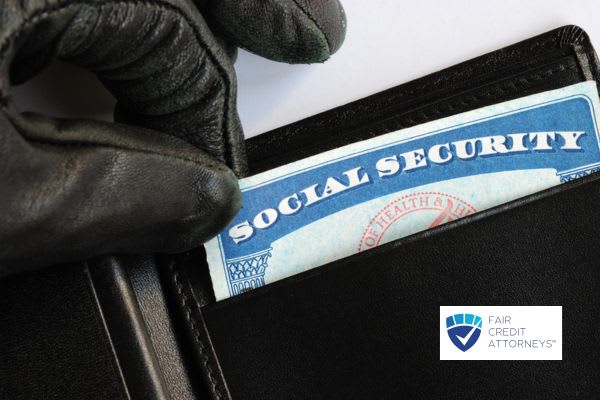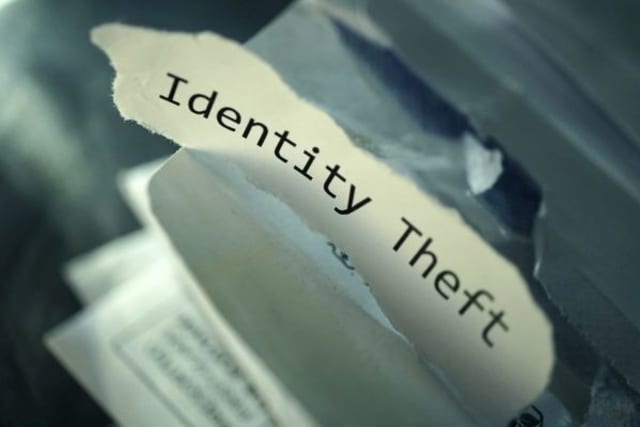If you’ve ever worried about identity theft, you’re not alone. With so much of our personal information stored online and shared with financial institutions, the risk has never been higher. Victims often ask: Is there a statute of limitations on identity theft? The answer depends on many factors, and understanding those rules could be critical for your case.
At Fair Credit Attorneys, we know how overwhelming these laws can feel. Whether you’re accused of identity theft or think you might be a victim, our identity theft lawyers can guide you through the process.
Call our team today at (866) 381-6444. We understand both federal and state statutes thoroughly.
Why Statutes of Limitations Matter
The statute of limitations is the legal “clock” that sets the maximum time prosecutors have to file criminal charges. Once that period expires, the government generally cannot move forward with a case.

Why does this matter?
- Evidence fades with time
- Witnesses forget details
- Bank Records, credit report checks, and authentication systems may no longer be available
For someone accused of a crime, the statute of limitations could mean the difference between facing a serious criminal record and having the case dismissed. For victims, knowing the timeline helps them understand when they can still file a claim or report fraud to credit reporting agencies and law enforcement.
Federal vs. State Statutes
Statutes of limitations differ depending on whether a case is handled in federal or state court.
- State statutes: Each state sets its own timelines. For example, Illinois may treat certain white collar crime offenses differently from neighboring states.
- Federal statutes: These are found in the United States Code and often allow longer filing periods, especially for major fraud cases or crimes involving financial institutions.
A common question is: What is the statute of limitations for federal identity theft? The answer is usually five years, but several exceptions can extend it.
Federal Identity Theft Statute Under 18 U.S.C. § 1028
The federal government prosecutes identity theft under 18 U.S.C. § 1028, which covers a wide range of activity involving personal data, including:
- Social Security numbers
- Driver’s license numbers
- Credit or debit card numbers
- Personal identification numbers
This law works hand-in-hand with 18 U.S.C. § 1028A, which creates harsher penalties for aggravated identity theft, especially when identity theft is tied to other crimes like Securities Fraud, Healthcare Fraud, or money laundering.
The Identity Theft and Assumption Deterrence Act also expanded federal protections, making it clear that using someone else’s identity for fraud can lead to severe penalties.

State-Level Variations
While federal law provides a baseline, states add their own rules. Some extend the timeline for attempted identity theft or credit card abuse. Others may classify identity theft as a non-capital offense with shorter statutes of limitations.
That means the state you’re in can dramatically change your case. This is why consulting a criminal defense attorney familiar with both state and federal law is so important.
Key Factors Influencing Statutes
The statute of limitations is not one-size-fits-all. Several factors influence how long prosecutors have to act:
- Nature of the Crime
- Simple identity theft may carry a shorter period.
- Crimes involving bank fraud, COVID-Relief Fraud, or federal dark web crimes often have longer timelines.
- Jurisdictional Differences
- Federal timelines often outlast state ones.
- Certain crimes tied to terrorism offenses, human trafficking, or sexual assault may have no limitations at all under Section 3286.
- Impact of Aggravating Factors
- When identity theft intersects with fraud cases or conspiracy crimes, the clock can be extended.
- Section 3293 allows up to 10 years for crimes involving financial institutions.
- Section 3294 provides even longer for certain fraud charges.
People sometimes wonder: Can a person be charged with both identity theft and fraud? Yes. And when that happens, the timeline to prosecute usually becomes longer.
When Does the Clock Start?
The discovery rule is key here. The statute of limitations may begin either:
- When the crime is committed – for example, when stolen credit card information is first used.
- When the crime is discovered – such as when a victim notices suspicious activity during a credit report check.
Tolling in Exceptional Circumstances
Sometimes the clock pauses, such as when:
- The suspect is hiding from a criminal investigation
- Evidence is tied up in a complex fraud scheme
- Agencies like the Federal Bureau of Investigations, Secret Service, or the Department of Justice are still gathering proof through electronic communications, the postal system, or data breach investigations
Identity Theft and Related Crimes
Identity theft rarely stands alone. It often connects to other offenses like:
- Mail or wire fraud
- RICO crimes
- Tax identity theft
- Trafficking in stolen identities
- Obstructing justice
Each of these adds complexity and can stretch out the statute of limitations.

Legal Defenses and Strategies
If you’re accused of identity theft, one of the first things your fraud charges defense lawyer or White-Collar Defense Attorney will look at is whether the statute of limitations has expired. If it has, the case may be dismissed outright.
Other strategies include:
- Challenging the evidence from credit bureaus or credit reporting agencies
- Questioning whether your Bank Records were lawfully obtained
- Demonstrating that authentication systems or digital privacy safeguards were compromised by someone else
Learn More: Do I need a lawyer for identity theft?
Exploring Timelines in Defense
Every case is unique. For example:
- In artwork theft or federal fraud cases, the timeline may extend.
- For maritime violence, child trafficking, or Second-degree criminal sexual misconduct, federal law may allow for longer or even indefinite prosecution.
- Even a seemingly minor traffic court case could raise questions about personal data use.
This is why a criminal defense lawyer must carefully map out all relevant statutes to build a case-specific strategy.
The Role of Legal Guidance
Trying to navigate federal statutes like 42 U.S.C. § 408 (covering social security fraud) or the Criminal Resource Manual on your own is overwhelming. The language is dense, and the consequences of missteps are serious.
An experienced criminal defense attorney can:
- Review your police report and any signs of identity theft
- Analyze how federal rules like Section 3282 (five-year general limit) or Section 3293 (10-year fraud limit) apply
- Build a defense around whether the statute has already run out

A question that comes up frequently is: What should I do if I suspect I am a victim of federal identity theft? The first step is to file a police report, check your credit report, and then speak to an identity theft lawyer who can guide you on the legal and financial side.
Navigating Complexities of Legal Timelines
The statute of limitations for identity theft isn’t simple; it depends on whether the case is federal or state, the nature of the crime, and whether other offenses are involved. Timelines can stretch from five years to ten years or more, especially when tied to financial institution offenses, conspiracy crimes, or terrorism offenses.
If you’re facing charges or think you’re a victim, don’t try to sort it out alone. At Fair Credit Attorneys, we understand the intersection of identity theft, fraud charges, and complex federal statutes. Our team can help protect your rights, your financial future, and your peace of mind.
Contact Fair Credit Attorneys today to speak with a knowledgeable lawyer who will stand by your side.



